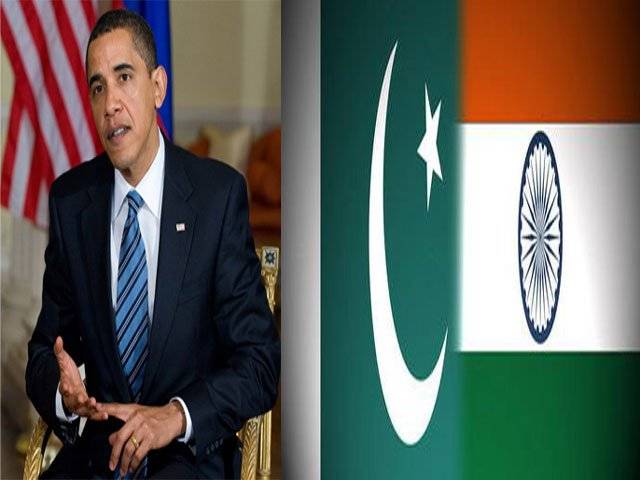WASHINGTON - The White House said Wednesday that it will try to have equilibrium in its relationship with India and Pakistan, the two South Asian rivals, as President Barack Obama prepares to visit India. "The president (Barack Obama) believes that the U.S. relationship with India and Pakistan does not take place within a kind of zero-sum dynamic," said Ben Rhodes, White House Deputy National Security Advisor For Strategic Communications, "It's often been viewed that way in the past, that if we become closer to one, it's at the expense of the other," as Rhodes was quoted as saying at a White House news briefing on Obama's upcoming trip to India, which is expected to focus on commerce and trade. Obama is set to start a three-day trip to India on Nov. 6, but will not visit Pakistan until 2011. Obama will have a tight schedule in his Asian trip next month, which will take him to India as well as Indonesia, South Korea and Japan, Rhodes said. "So he wanted to make sure we have the proper focus on that Pakistan trip when it does take place," the senior advisor added. The U.S. and Pakistan concluded a three-day cabinet-level strategic dialogue last week in Washington, focusing on greater security cooperation and economic issues. The U.S. agreed to provide 2 billion U.S, dollars in military aid to Pakistan over five years. "I think the strategic dialogue speaks to the fact that we're cooperating closely with Pakistan, just as this visit speaks to a deepening relationship with India," according to Rhodes, "We don't see it as, kind of, a zero-sum equation." "Our central message to the region is that both of these relationships can be advanced and deepened at the same time, on a parallel track, and that does not in any way demonstrate a preference for one relationship over the other." Asked about whether Obama will talk about Kashmir and the tensions between the two neighbors during his visit to India, U.S. Undersecretary of State William Burns replied that "we've always welcomed dialogue between India and Pakistan, and certainly encouraged efforts to improve relations between those two very important countries. Obviously, the pace, scope and character of that dialogue is something that Indians and Pakistanis have to shape." Pakistan has called for a U.S. role in resolving the dispute of Kashmir, while India has been vehemently against a third-party mediation into the issue. Theb US has said it won't try to mediate the decades-old dispute. On Tuesday, the White House said in a statement that President Asif Ali Zardari, during a telephonic talk with Obama, acknowledged that more work needed to be done to address the direct threat to both nations by "terrorist groups in Pakistan."
Sunday, May 19, 2024
US ties with India, Pakistan no "zero-sum dynamic"

NEPRA’s Neglect
May 19, 2024
Colonial Grip
May 19, 2024
Confrontational Politics
May 19, 2024
Sports & Genocide
May 18, 2024
Healing AJK
May 18, 2024
Unsung Heroes of Society
May 19, 2024
Water Shortage in Our Area
May 19, 2024
The AI Trap
May 19, 2024
Continuing Narrative of Nakba
May 18, 2024
Teacher Struggles
May 18, 2024
ePaper - Nawaiwaqt
Advertisement
Nawaiwaqt Group | Copyright © 2024





